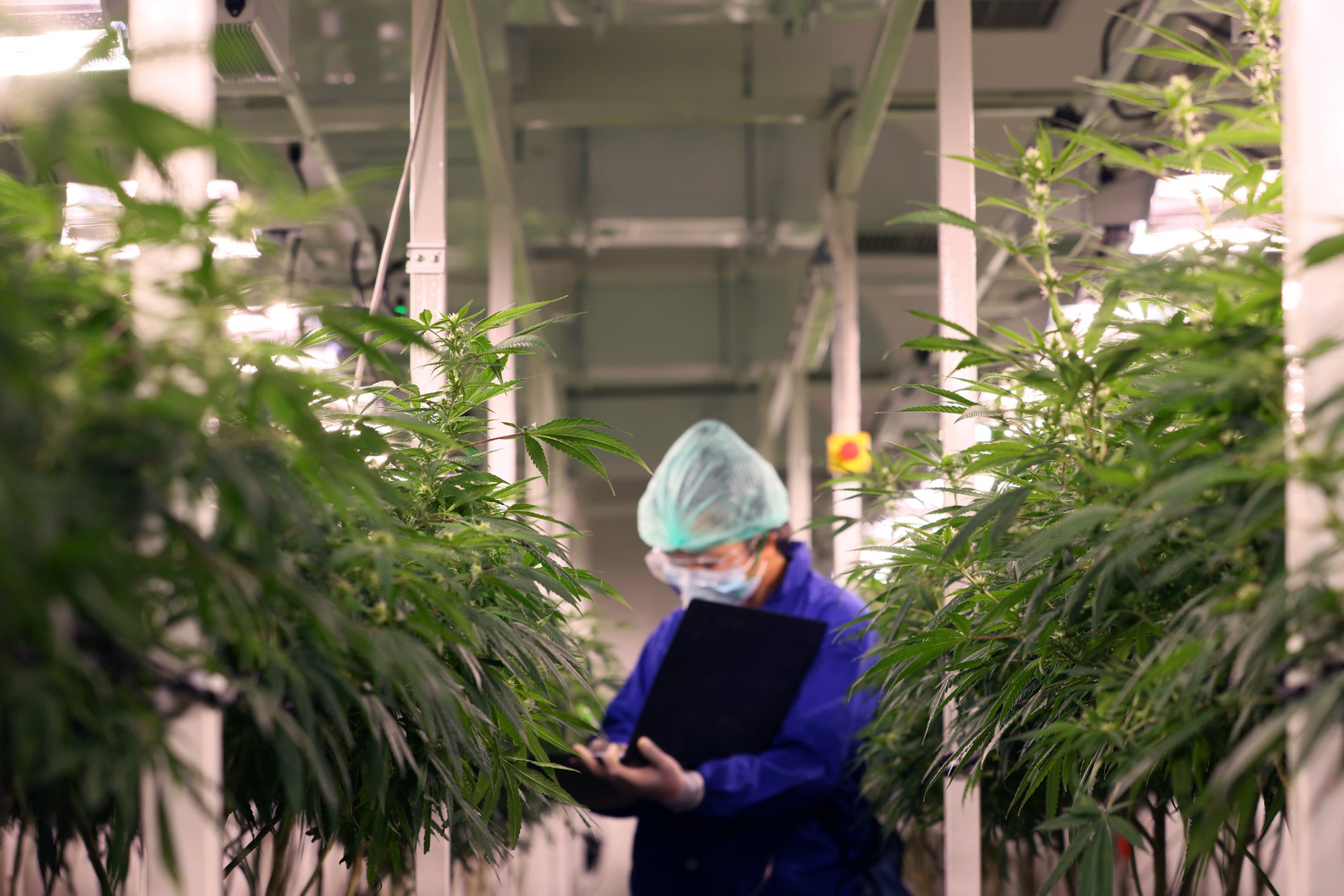Innovative Industrial Properties (IIPR 0.06%), commonly referred to as IIP, has long prospered by capitalizing on the growth of the cannabis industry. Instead of operating as a marijuana producer, it is a real estate investment trust (REIT) renting property to medical cannabis growers.
While this approach has kept it consistently profitable and its properties 100% leased, it has not insulated IIP from all of the industry's troubles. Consequently, the stock is in the midst of a massive sell-off, but that lower stock price could actually increase its chances of delivering outsize returns over time.
How IIP stands out
IIP differs from most other REITs in that it focuses on facilities used for growing medical cannabis in states where it is legal. This approach gives IIP a few advantages. Since it is not technically a marijuana company, it does not have to deal with the federal restrictions that hamper cannabis growers.
Moreover, while IIP will sometimes purchase and develop properties, one method of obtaining its real estate has drawn investor interest. Cannabis companies cannot rely on traditional banks because of strict federal regulations. So in order to fund its clients' businesses, IIP will buy the company's property and lease it back to it through its sale-leaseback program. Thus, it benefits from the federal prohibition of marijuana in some respects.
Unfortunately for IIP, oversupply in the cannabis industry has left a few tenants unable to pay rent, and collection rates stood at 92% in February. Also, in 2022, IIP increased the improvement allowance for several of its clients, meaning they paid for improvements in lieu of some rental payments. That will also negatively affect collections and probably pressure IIP's revenue levels in the near term.
Despite that concern, all REITs deal with delinquent tenants at times, and IIP has proved itself adept at managing its revenue-related challenges. It has drawn revenue from client security deposits, reworked agreements, found new tenants, and sold underperforming properties to keep growing its adjusted funds from operations (AFFO), a measure of a REIT's operating performance.
The state of the stock
The delinquencies diminished confidence in the stock. IIP now trades at a 75% discount to its late 2021 high.

NYSE: IIPR
Key Data Points
But the company remains stable despite this challenge, so investors should question whether the rise in delinquent tenants justified this massive sell-off.
This lower stock price might have also set up new investors for outsize returns. Its 2022 revenue of $276 million was up 35% versus 2021. Also, its 2022 AFFO was $234 million, or $8.45 per diluted share, an increase of 34% year over year for total AFFO. This means the stock trades at less than 9 times its AFFO.
That AFFO covered the $185 million in dividend expenses. It has also kept the payout stable amid the falling stock price. So at $7.20 per share annually, it now yields around 10%!
Furthermore, since a REIT must pay at least 90% of net income in dividends to maintain its tax breaks, this payout is unlikely to disappear. Admittedly, with its current challenges, one cannot rule out the possibility of a dividend cut, but even if it adjusts the payout, it will likely remain a high-yield dividend stock.
Consider IIP
Despite (or possibly because of) its challenges with delinquent tenants, IIP is in an excellent position to deliver outsized returns. The low valuation allows new investors to buy shares cheaply, and amid its turmoil, it has shown an ability to employ mitigation strategies when clients fail to pay. As IIP continues to prove its stability amid that industry turmoil, the low stock price should bring investors back into the stock.





